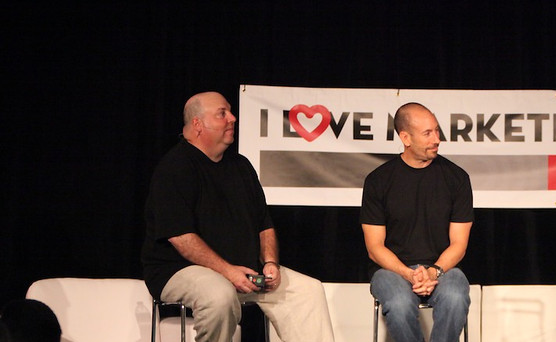Share
Subscribe
Dan Kennedy on How the Internet Changed Marketing

The internet has done a number of good things and it has done a number of bad things, like just about every innovation prior to it. Every coin has a head and a tail, right? Everything has its plusses and minuses. With the internet, the biggest plus, probably, is it has virtually erased all barriers to entry, made testing cheap, easy, and quick, and made startup launches faster. On the flip side, the biggest minus is, it has virtually erased all barriers to entry. It has erroneously democratized the marketplace with very confused consumers and moral equivalency among very unequivalent competitors.
On the plus side, it provides, essentially, unlimited real estate without cost. This is an asset a lot of people aren’t using, because they’re buying into this “have to be brief” idea. If you and I wanted to mail a 36-page sales letter, that would cost more than an 8-page sales letter. If we want to put 36 pages of stuff up on the internet, it doesn’t cost us any more to do that than it does to put up 6 pages. So, it provides unlimited real estate, which if used wisely, is an enormous asset.
The third big plus is, that it allows instant and frequent communication. We can be timely. The Collier copywriting principle of entering the conversation that’s already occurring in the customers mind, we can do that, literally. We can do that on a day-by-day or hour-by-hour basis. Most other media doesn’t really give us a practical way to do that. In sequential marketing, 16-step or 48-step campaigns, obviously, you can put in more steps affordably, because of the way you can communicate online.
On the minus side of the internet a lot of old advantages, for most purposes, like traditional credibility or leadership positions, now are severely compromised in the online environment. The consumer really can’t differentiate between your company that’s Grand-dad founded and is 83 years old, and somebody who copycatted you. In the content world, the pimple-faced doofus who lives in his mother’s basement is now equivalent to the New York Times. Free content is equivalent to paid content. So all of that has made both the intellectual property marketer’s, and the marketer’s jobs in general, harder. It allows parasitical feed on market makers.
All of this is a muddy mess. When you leave customers or prospects online, you’re very susceptible to it. In the financial advisor community, where I’m doing a lot of work, they call it the Google slap. They generate a prospect, nurture a prospect, educate a prospect, move a prospect along…but if they’ve left him online and they’re communicating a lot with him online, right in front of this prospect is the enormous temptation and ease of tying in the word “variable annuities” and seeing what else comes up. Now, he’s in a world of comparing rates and yields, but really he can’t compare quality, and you’ve lost control of this guy.
In many businesses, that’s a real problem. It requires us to get that customer, even if we generated him online as a lead, or we took him through an online media, we’ve got to get off of there and get him back to selling in a vacuum. Lead-generate online, but then take them off or take them back online after you have developed a customer relationship with them, in order to do backend business. No big, successful, direct marketing company, even those we think of as e-commerce companies-and no client I’m working with-generate a lead, make a sale, do the delivery-in other words, do everything within the cyber walls of cyberspace.
Nothing has made me more money in my life than the existence of the internet, directly and indirectly, in terms of working with clients. But, having said that, hardly any of that money has been made solely and exclusively by use of the internet without comprehensive support of other media, marketing processes and sales processes. Internet marketing is the use of a media. Media is only one-third of the puzzle. But for marketing, whether good or bad, the internet has provided a fascination, fast, very agile collection, really… portfolio of media; social media, websites, online videos, and YouTube.
For the full episode, check out The one with Dan Kennedy.










TELL US WHAT YOU THINK, LEAVE A COMMENT BELOW